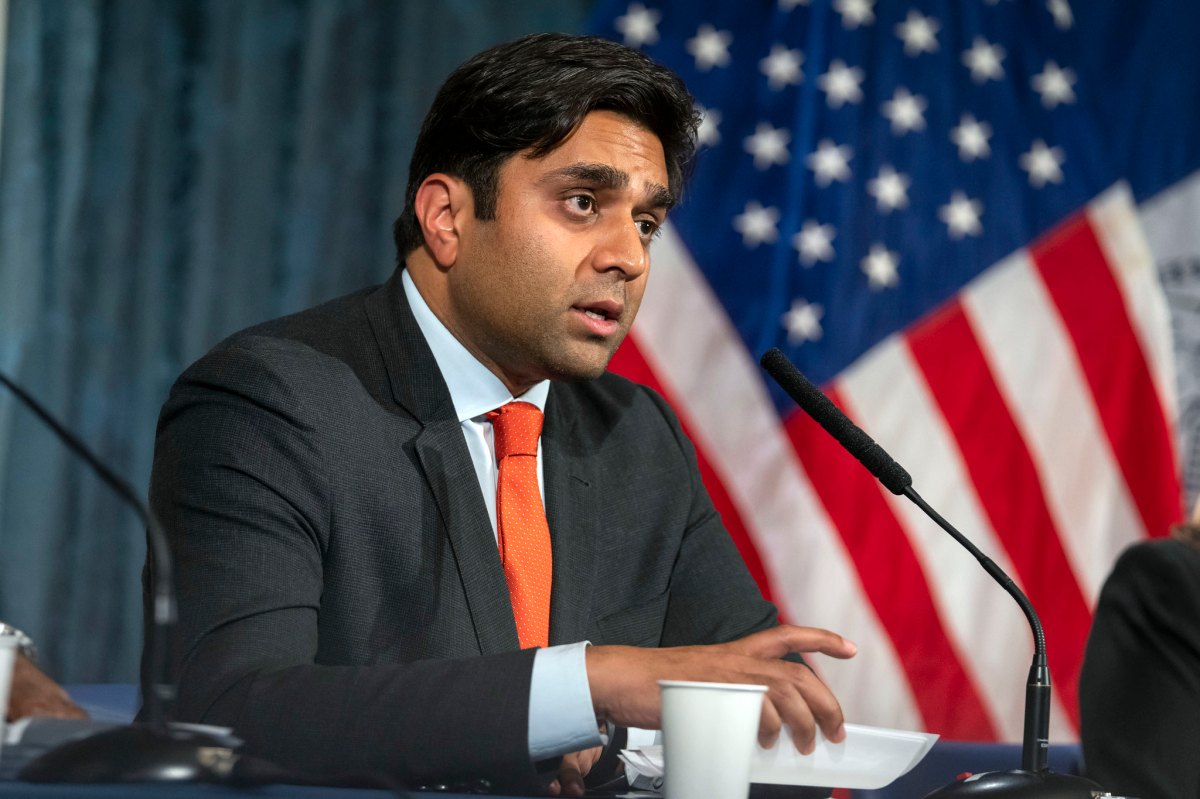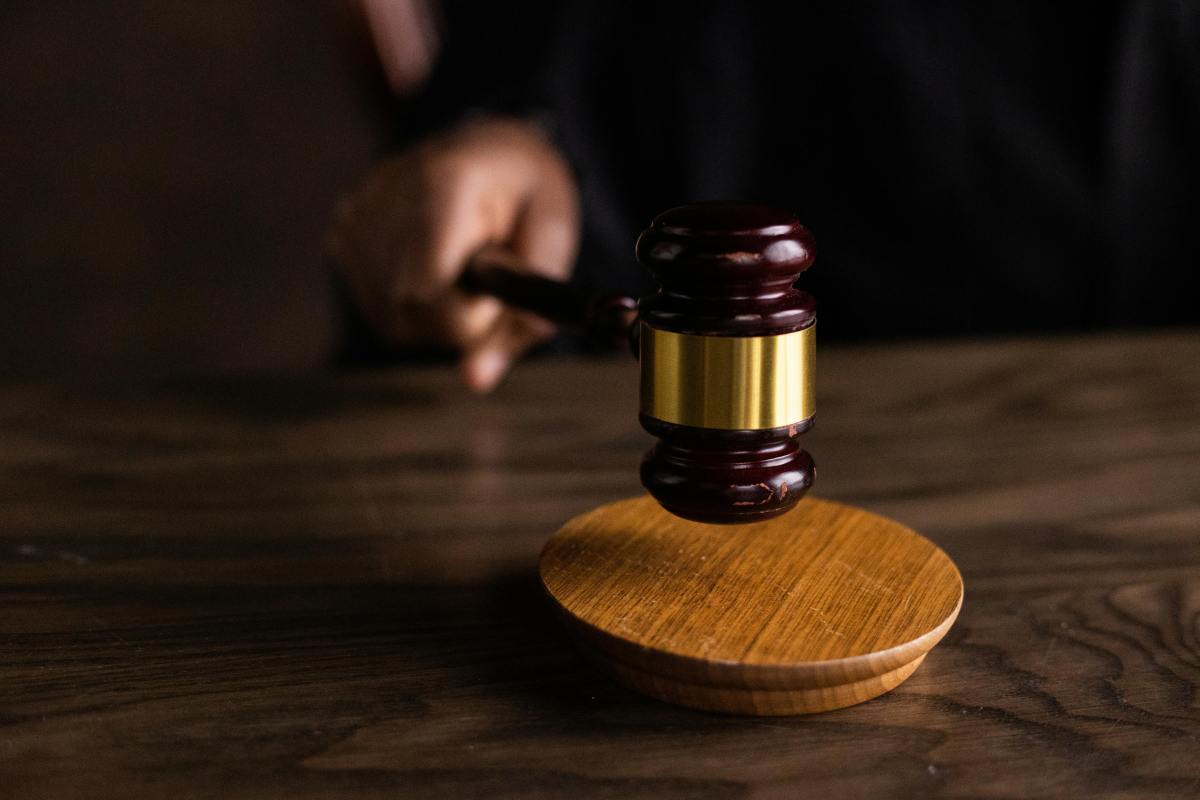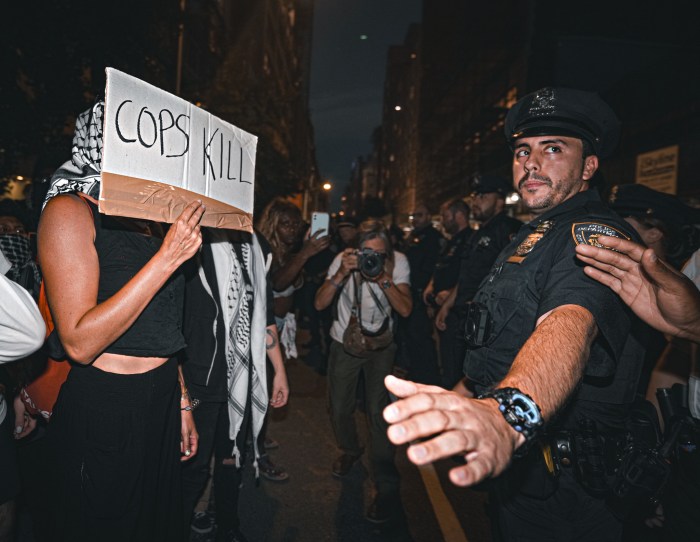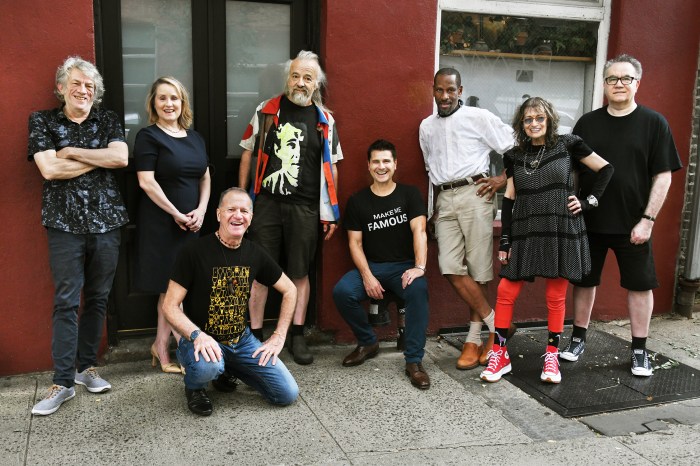By Albert Amateau
It was all about public housing last Saturday at First Houses on E. Third St., the first public housing in New York City and the first in the nation.
The crowds came from the neighborhood and beyond to join residents, elected officials and the board of the New York City Housing Authority to celebrate the 70th anniversary of the first 122 families moving into the eight five-story buildings on the south side of E. Third St. between First Ave. and Avenue A.
There was food, music and fellowship for visitors and residents who filled the white tent set up in the courtyard behind the houses to hear singing by the senior chorus and young singers.
Tino Hernandez, NYCHA chairman for the past 12 years, who spent his teen years in the Jacob Riis Houses on Avenue D and E. Seventh St., recalled that he was standing where the first lady, Eleanor Roosevelt, had stood in December 1935 along with Mayor Fiorello LaGuardia and Governor Herbert Lehman to dedicate the nation’s first public housing.
Ted Gamble, manager of First Houses, and Andrew Hladek, the tenant with the most years in the houses, were honored.
Hladek, who says he’s 91, but looks 15 years younger, recalled living in the neighborhood since 1927 before the tenements on E. Third St. were rebuilt as First Houses.
“I used to live around here on Second St.,” he said, noting that each block then had a different ethnic population: One block would be Irish, another Italian, another Jewish. “It was like a segregated community,” he said.
Hladek recalled serving in the Army during World War II and after.
“I was General MacArthur’s private cook in Tokyo headquarters,” he said. His sons, age 69, 58 and 45 are, respectively, a retired professor, a detective and an investment counselor. “My wife [who is 85] is upstairs cooking,” he said before leaving the festivities.
The original tenements on the block, riddled with housing-code violations, belonged to Vincent Astor, who sold them to the city when the Housing Authority was founded in 1934. The city hired the architect Frederick Ackerman, who removed every third building to provide light and air and rebuilt those remaining with brick exteriors and entrances not on the street but in the rear courtyard with benches and trees.
At the December 1935 dedication, LaGuardia exclaimed, “There is sunshine in every window.” Hernandez noted that First Houses, one of the smallest NYCHA complexes, was designated a New York City landmark in 1974. Soon after construction started on First Houses, the federal government financed Harlem River Houses in Manhattan and Williamsburg Houses in Brooklyn, which have also received landmark designation. There are now 180,000 apartments in NYCHA developments.
State Senator Martin Connor invoked the name of President Franklin Delano Roosevelt and his commitment to affordable housing.
“Public Housing is a great success in New York City,” he said.
However, Connor said, he regretted that federal and state funding for NYCHA has declined in recent years. “But things are changing, and I believe we’ll see public housing get the support it deserves,” Connor said.
“Mayor Bloomberg has made a commitment to support NYCHA, and we have to fight for federal money for public houses,” Hernandez said.
City Councilmember Rosie Mendez told the crowd that public housing was dear to her heart.
“When I was 11 years old, we moved to Williamsburg Houses,” Mendez said. “Friends always came to my house to play. We always had heat and there were no rats. It’s true I’ve been critical of public housing, but I expect the best from NYCHA — they’re the best in the nation.”
Former Councilmember Margarita Lopez who is now a member of the NYCHA board, made an impassioned plea for federal recommitment to public housing.
Lopez paid tribute to “the great people who stood here before us” — Eleanor Roosevelt, LaGuardia and Lehman, and added — “We need to go back to the beginning and realize that public housing is not something that you give to the poor; it’s something you give to the nation to make it great.”





































